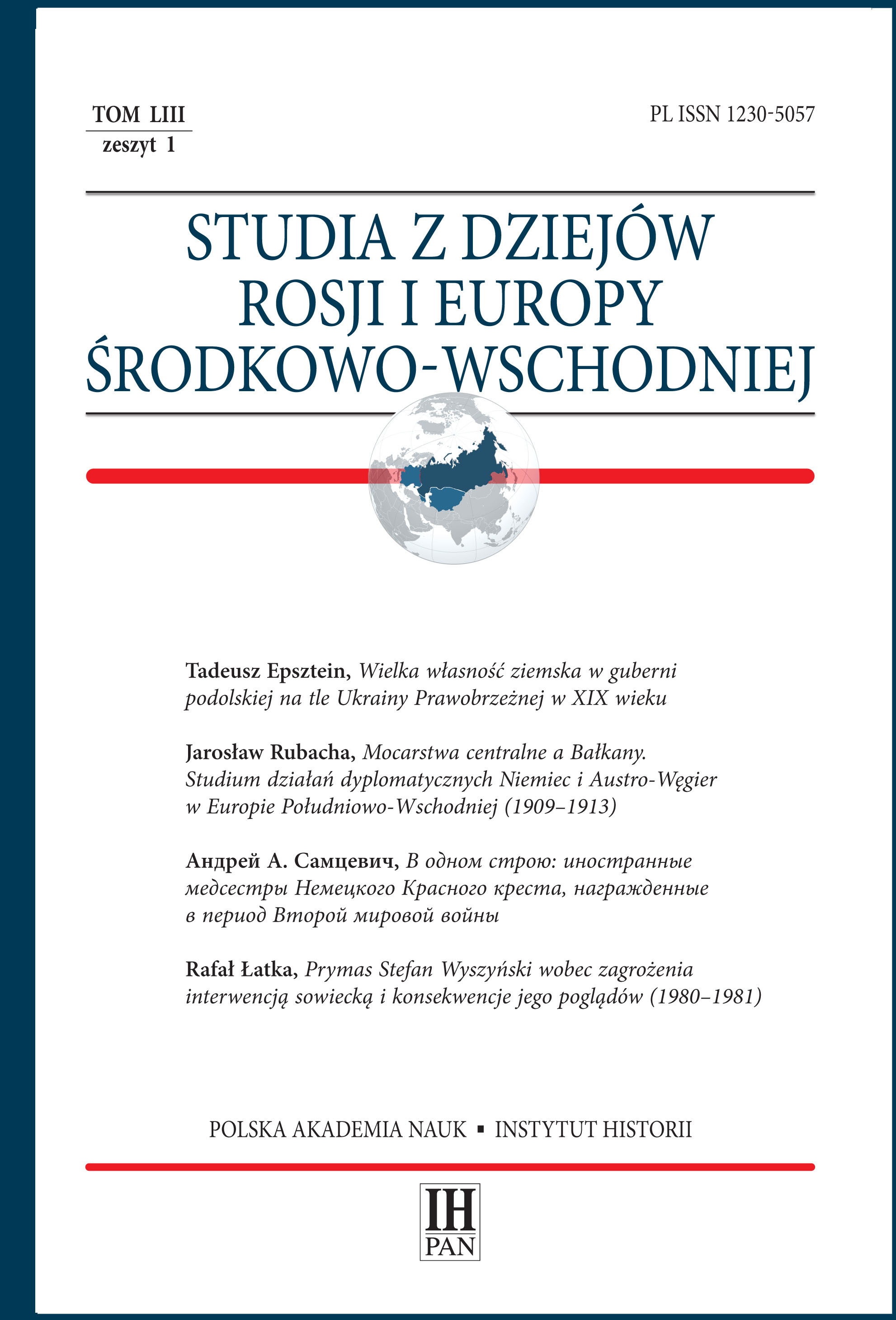Mocarstwa centralne a Bałkany. Studium działań dyplomatycznych Niemiec i Austro-Węgier w Europie Południowo-Wschodniej (1909–1913)
The Central Powers and the Balkans. A study of diplomatic activity of Germany and Austro-Hungary in South-Eastern Europe (1909–1913)
Author(s): Jarosław RubachaSubject(s): History, Diplomatic history, Military history, Political history, Recent History (1900 till today), Pre-WW I & WW I (1900 -1919)
Published by: Instytut Historii im. Tadeusza Manteuffla Polskiej Akademii Nauk
Keywords: Germany; Austro-Hungary; Central Powers; the Balkans; South-Eastern Europe; Balkan wars of 1912–1913
Summary/Abstract: Due to its geographical location nestled between the “Western World” and the “World of the Orient”, the Balkan Peninsula has for centuries been playing an important part both in European politics, and economy. Its significance increased sharply in the mid-nineteenth century, after the European powers entered the so-called imperial era. It is therefore not surprising that at that time this relatively small region at “the end of the civilised world” became the battlefield for zones of influence. The rivalry was also joined by Germany and Austro-Hungary. And although these states had different ultimate ends, it was known both in Berlin, and in Vienna that the advantage over the competitors and opponents could have a great impact not only on the development of national industry, which would gain a new ready market, but also on the shape of European policy. However, the processes of deep changes and transformations that occurred in the Balkans in the early twentieth century, wrongly identified and underestimated by the Central Powers, determined their abject failure in the attempts to strengthen their position in South-Eastern Europe.
Journal: Studia z Dziejów Rosji i Europy Środkowo-Wschodniej
- Issue Year: 53/2018
- Issue No: 1
- Page Range: 35-61
- Page Count: 27
- Language: Polish

